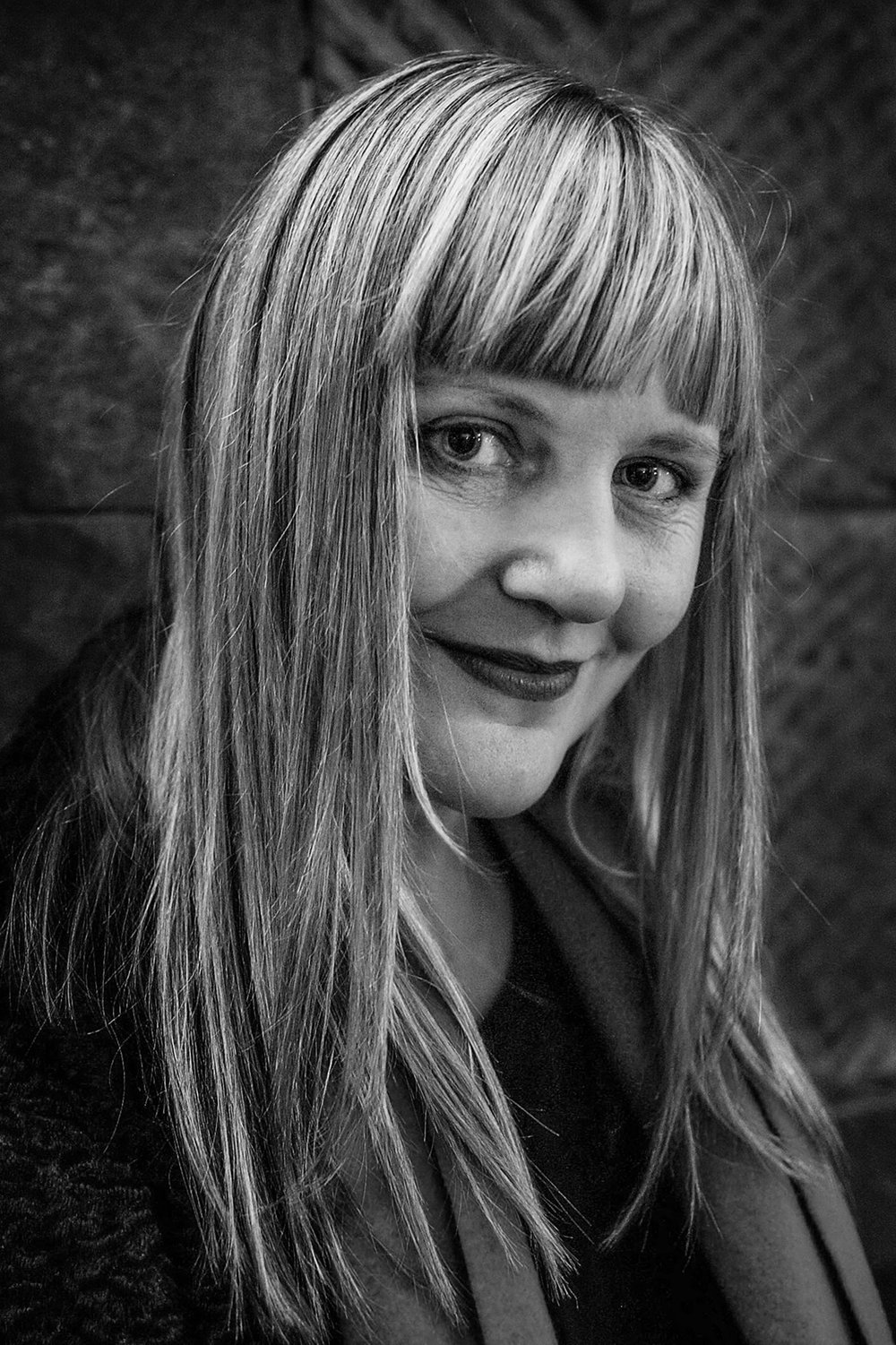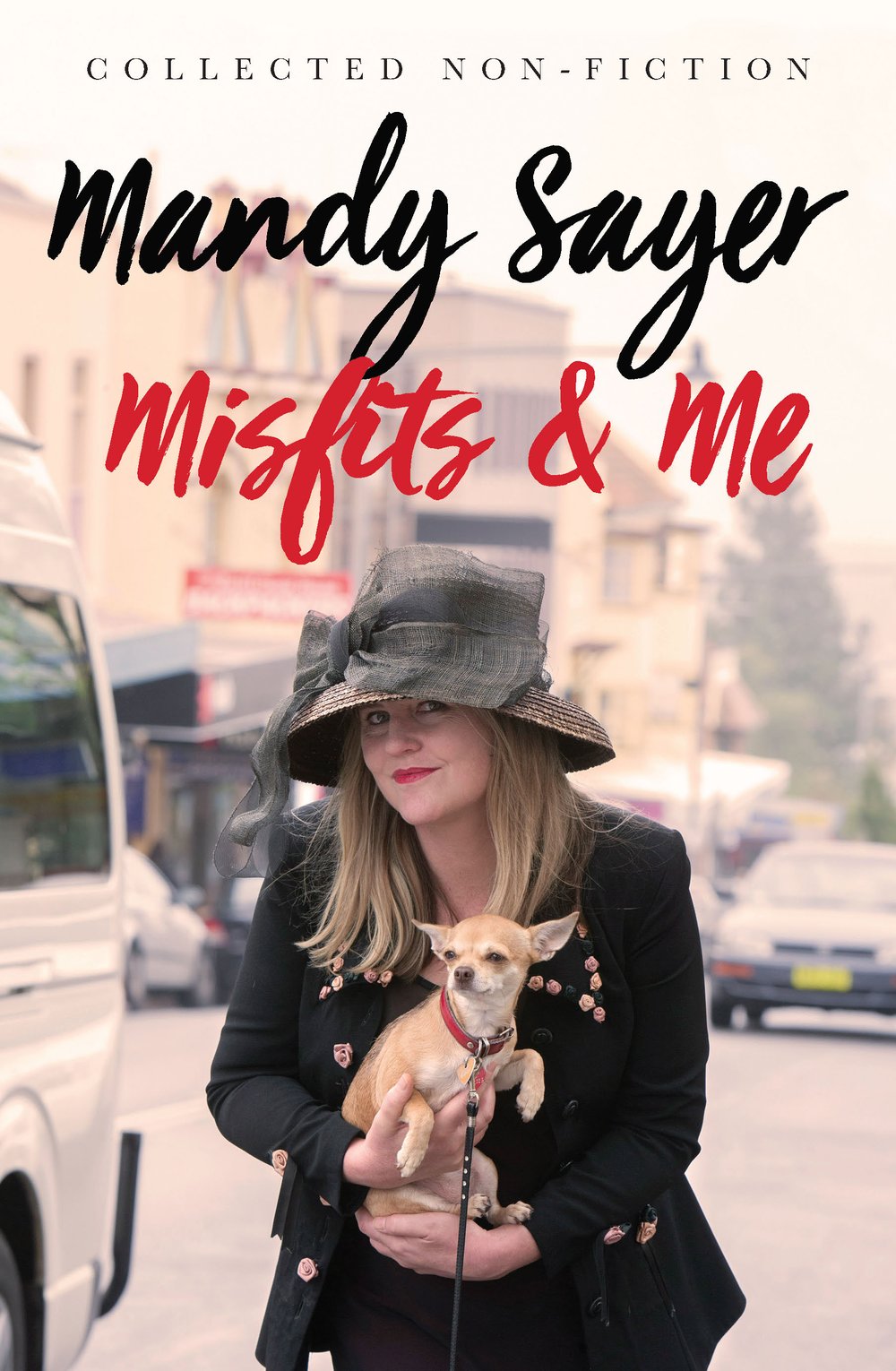Extract from Misfits & Me: Collected Non-fiction by Mandy Sayer
Love and Death in Darlinghurst
(2005)
When we began to fall in love, he was still living with his wife. The process was so gradual it was almost imperceptible, like watching ice melt. I didn’t have much time to contemplate what was unfolding between us: my father was sleeping in my bed every night, while I lay on the floor in the next room, listening to his faltering breath, the short sharp wheezing after he spat blood into a bucket.
Louis and I met shortly before my father’s diagnosis. A friend, writer Linda Jaivin, threw a dinner party and the other two invited guests pulled out at the last moment. A phone call later and Louis arrived to fill out the numbers, all long limbs and wild black curly hair as he bounded through the door. He didn’t seem so much a man, but a force of nature, a whirlwind of stories, one- liners and witticisms that were seemingly inexhaustible. Over pita bread and red wine we chatted about the area in which we both lived – Kings Cross – and about how so many of Australia’s most prominent writers had either lived in the Cross and/or had written about it. By the time Linda had served the entree, the three of us had decided to edit an anthology about the Cross. Of course, like most people, I’d participated in many a boozy, potentially great collaborative idea before, and assumed that the excitement of this prospective project would soon fade the next morning, along with our hangovers.
The next morning Louis faxed me to arrange a meeting. By the time the three of us convened at Moran’s restaurant to sketch out a structure for the book, Linda confessed she had to drop out of the project, due to pressing deadlines. I felt conflicted myself. Apart from working on a screenplay, a short story collection, and trying to finish my Doctorate, my father had just been diagnosed with lung cancer and had been given six months to live. I would be his only carer.
I had turned up to the meeting prepared to bow out of the project, too. But Linda made her announcement first, and when I expressed doubts about the availability of my own time, Louis flashed me a look of such profound disappointment that I qualified my excuses and simply warned him that, during the editing process, my energies would be stretched.
We drew up a reading list and parted ways. My time over the following months was divided between measuring morphine, counting tablets, reading works by Kenneth Slessor and Sumner Locke Elliott, revising my story collection, daily walks with my father to St Vincent’s Hospital for his radiotherapy treatment, organising blood transfusions, researching the history of Kings Cross, and struggling, with great difficulty, to keep my nerve. Louis and I would meet about once a week at Moran’s, to exchange material and to discuss and shape what was becoming our man- uscript. I soon found, however, that he was a speed-reader and I could not keep up with the pace at which he devoured entire books. I, on the other hand, am slow and careful, re-reading paragraphs, making notes in the margin. I felt guilty about not being able to keep up with him. At one point, after I’d taken my father into the Emergency Department of St Vincent’s, and had been informed that the cancer had spread to his lymph nodes, I faxed Louis and explained, with great regret, that I could no longer cope and had to pull out of the project altogether. Perhaps he could find a replace- ment, or continue with the editing on his own?
He called me immediately: he understood the pressure I was under, but wanted me to remain attached to the anthology. He would do most of the initial reading, and I would eventually vet his short list. Just turn up to Moran’s, have a glass of wine, and give me your opinions! he said, with his usual jollity. This seemed simple enough, but I still felt uneasy about not being able to make an equal contribution.
Sometimes I’d turn up tense as a stretched piano string, faltering and out of tune to the subject at hand. The cancer had travelled up to my father’s frontal lobe, which stimulated aggressive behaviour, and his usual warm and genial manner had calcified into a persistent vitriol: his food was never hot enough, his enemas weren’t effective, all his doctors were idiots, and there was no way he was going to let a visiting palliative care nurse through the door to check his blood count and weight. It was the first time he’d ever yelled at me, and he continued to yell at me often. My greatest fear was that he would die, disappointed in, and withholding his love from, me.
Mandy Sayer's book Misfits & Me was published by NewSouth in October 2018.



